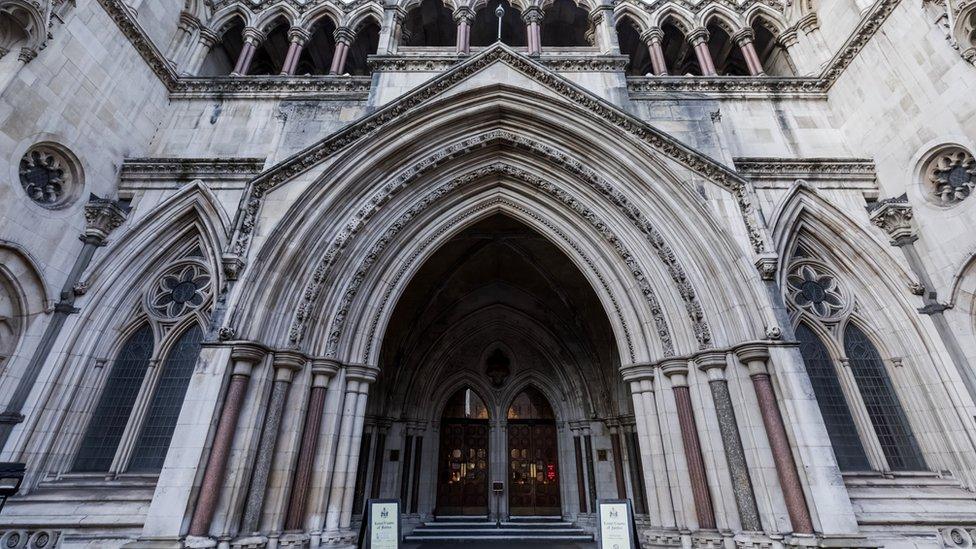Huntington's disease: Woman with gene fails in bid to sue NHS
- Published

The case has been heard at the Royal Courts of Justice in London
A woman who claimed she would have had an abortion if she had known her father had a fatal, inherited brain condition has failed in her bid to sue the NHS.
She claimed three NHS Trusts owed her a duty of care to tell her about her father's Huntington's disease.
Any child of someone with the condition has a 50% chance of inheriting it.
But the High Court ruled that the decision not to tell her about her father's diagnosis was supported by a "responsible body of medical opinion".
In her judgement at the court in London, Mrs Justice Yip found that, on the balance of probabilities, the claimant would not have gone ahead with a termination of her pregnancy if she had been made aware of the risk.
She added that while she had "the greatest of sympathy for the tragic circumstances in which the claimant finds herself, this claim must be dismissed".
The woman, who is known as ABC in order to protect the identity of her own daughter, only found out that her father had Huntington's disease four months after giving birth.
Her father had told doctors he did not want his daughter told about his diagnosis, fearing she might kill herself or have an abortion if she found out.
Huntington's disease is caused by a faulty gene and leads to the progressive loss of brain cells, affecting movement, mood and thinking skills. It can also cause aggressive behaviour.
ABC's father tested positive for the condition in 2007 after he killed her mother and was detained under the Mental Health Act.
Medical staff sought the father's consent to disclose his diagnosis to his daughter, who was pregnant at the time, but he refused.
The woman says she would have had an abortion if she'd known about her father's condition
Symptoms of the disease usually appear between the ages of 30 and 50.
ABC, who is now in her 40s, told the High Court - which first heard the case in 2015 - she had found out about her father's condition by accident and was diagnosed with the disease in 2013.
Her daughter, who has not been tested, has a 50% chance of inheriting it from her. Tests for the disease can only be performed when people reach 18.
She was suing St George's Healthcare NHS Trust in south-west London and St George's Mental Health NHS Trust and Sussex Partnership NHS Foundation Trust for Ā£345,000 in damages.
Huntington's disease
About 8,500 people in the UK have Huntington's disease and a further 25,000 will develop it when they are older
It is a rare inherited disorder that damages certain nerve cells in the brain
Huntington's generally affects people in their prime - in their 30s and 40s - and patients die about 10 to 20 years after symptoms start
Some patients describe it as having Parkinson's, Alzheimer's and motor neurone disease rolled into one
- Published18 November 2019
- Published23 January 2018